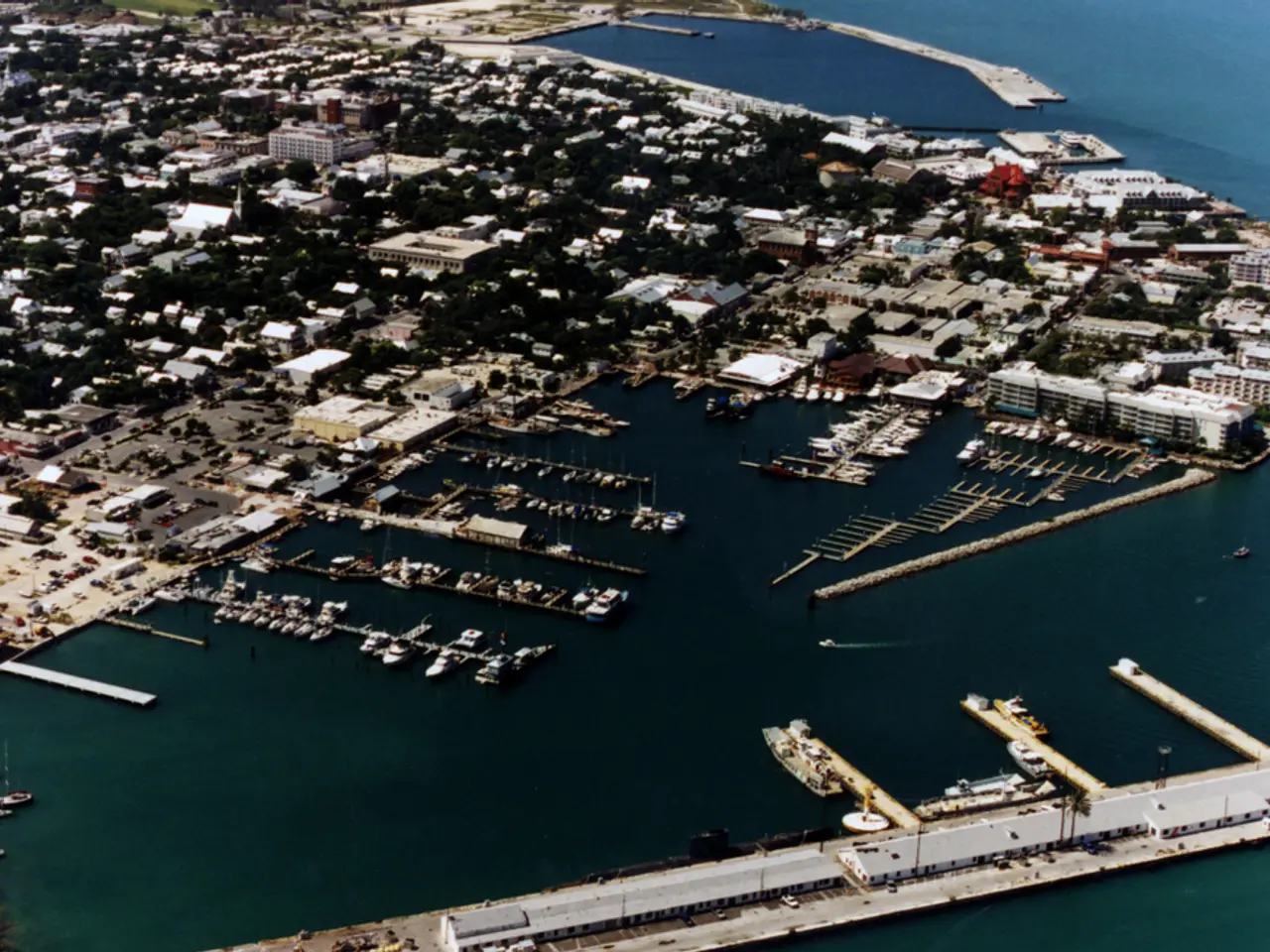Gulf Coast Region of Mississippi
The Mississippi coast, once a popular family beach destination for decades, has faced its fair share of trials in recent years. Casino gambling began in the 1990s, followed by the devastating impact of Hurricane Katrina in 2005, which nearly destroyed many historic places. The coast also has a history of environmental neglect and poor planning, as evident in the oil spill that occurred this year.
However, the Mississippi coast is not one to be easily defeated. In the face of adversity, the region is undergoing a phase of growth and renewal, focusing on sustainable tourism. This approach emphasises eco-conscious travel, local culture, and resilience, reflecting the coast's spirit of resurgence.
New, environmentally friendly accommodations like the Ocean Springs Eco-Lodge are popping up. This lodge uses renewable energy, locally sourced materials, and water conservation to promote sustainability. The broader tourism sector is also evolving, with numerous new openings—hotels, restaurants, and bars—that highlight local heritage and ingredients, supporting community-based economic recovery and cultural preservation.
Efforts to expand nature-based tourism and workforce development through programmes like the Mississippi Master Naturalist indicate a commitment to integrating environmental stewardship into the region’s tourism offerings. This push supports a greener future by fostering nature tourism alongside traditional attractions.
The Mississippi coast's long-standing challenges, including hurricanes, casinos, and oil spills, have shaped a narrative of resilience and resurgence. Local leaders and tourism authorities continue to work on economic redevelopment plans that balance growth with sustainability, aiming for a vibrant, culturally rich, and environmentally responsible future.
Before the oil spill, the real stories of the coast were found on the back roads and behind the cookie-cutter hotels and new casinos. The oil spill can be seen as the final trial for the Mississippi coast, but it seems the region is rising to the occasion. Sustainable tourism on the Mississippi coast is advancing through a mix of eco-friendly infrastructure, nature-based tourism initiatives, cultural engagement, and economic resilience strategies, positioning the region as an evolving destination mindful of its environmental and social history.
The coast, which was in a state of disaster before the oil spill, is now on a path towards a greener and more sustainable future. The resilience and determination of the Mississippi coast are truly inspiring, and it serves as a beacon of hope for other regions facing similar challenges.
- Even amidst the rise of casino gambling in the 1990s and the catastrophic effect of Hurricane Katrina in 2005, the Mississippi coast has shown its unyielding spirit, embarking on a journey of growth and renewal.
- The environmental neglect and poor planning that contributed to the oil spill disaster this year has not deterred the region, but instead, it has fueled a focus on sustainable tourism.
- As a testament to this shift, the Ocean Springs Eco-Lodge, an environmentally friendly accommodation, has emerged, utilizing renewable energy, locally sourced materials, and water conservation.
- Expanding beyond accommodations, the broader tourism sector is undergoing a transformation, with numerous new establishments promoting local heritage, ingredients, and community-based economic recovery.
- To further integrate environmental stewardship into the region’s tourism offerings, programs like the Mississippi Master Naturalist are being developed, supporting nature tourism alongside traditional attractions.
- This commitment to a greener future promises a future that is not only vibrant and culturally rich but also environmentally responsible.
- Before the oil spill, the authentic stories of the coast could be found off the beaten path, away from the cookie-cutter hotels and new casinos.
- The oil spill could have marked the end, but the Mississippi coast is proving resilient once again, applying modern strategies like eco-friendly infrastructure, nature-based tourism initiatives, cultural engagement, and economic resilience to redefine itself as an evolving destination.
- The devastating situations that the Mississippi coast has faced, including hurricanes, casinos, and oil spills, have shaped a narrative of resilience and resurgence.
- Tourism authorities and local leaders continue to work on economic redevelopment plans, aiming to balance growth with sustainability for a brighter, culturally rich, and environmentally responsible future.
- Beyond tourism, the Mississippi coast's tale of perseverance offers hope for other regions grappling with similar challenges.
- The current path towards a greener and more sustainable future represents the determination of the Mississippi coast, serving as a beacon of hope and inspiration.
- With the advancements in sustainable living and the increasing interest in cultural travel, adventure travel, and sports-related travel, along with emerging trends in gambling and gaming in cities like Las Vegas, the Mississippi coast is poised to attract diverse travelers seeking unique, eco-conscious, and culturally immersive experiences.




